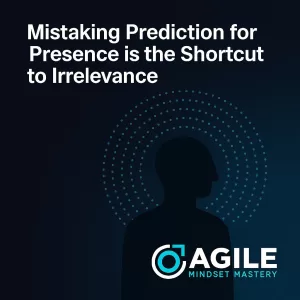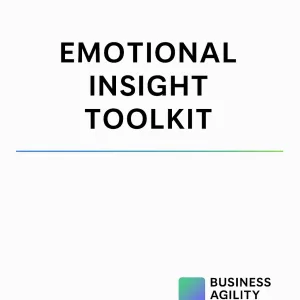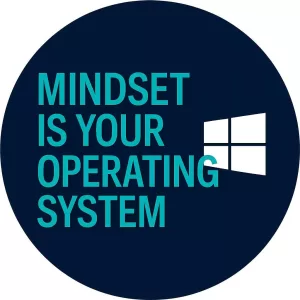The Cost of Ageism: What Businesses Are Missing by Silencing Experience
Discover how ageism in hiring, product design, and AI development is silently damaging business performance. Including over-55s isn’t charity, it’s strategy. From customer service to innovation, companies silencing experience risk losing market trust, product quality, and long-term sustainability.
Share this article:
The Cost of Ageism: What Businesses Are Missing by Silencing Experience
We talk about inclusion.
We talk about equity.
But there’s one bias quietly shaping our workforce and weakening our customer relationships, service delivery, product design — and now, our strategic future.
Ageism.
And it’s not just unethical — it’s strategically reckless.
Where We Are Now
We stand at a crossroads: organisations are embracing AI, accelerating change, and optimising for speed and scale. But at the same time, they are quietly excluding the very generation that built the systems now being automated.
Candidates over 55 are routinely labelled "overqualified," "not a cultural fit," or "too expensive."
Behind those coded words?
Bias. Assumptions. And a profound lack of strategic foresight.
Younger professionals — many now in hiring positions — are often unconsciously filtering out candidates in their parents' generation. Ironically, the very same age group may still be financially supporting those younger decision-makers through tuition, housing, and childcare for grandchildren.
By cutting off access to employment for these older professionals, organisations aren’t just discarding skill — they are eroding the very financial scaffolding that enables the next generation to learn, grow, and lead.
The Hidden Crisis in Plain Sight
While companies chase youth and speed, they’re shedding the very assets that make businesses sustainable:
- Consistency
- Context
- Customer connection
- Credibility
And nowhere is this loss more visible than in customer service and product development.
When We Removed Age, We Lowered the Standard
Over-55s were once the stewards of service.
They brought lived experience, professional pride, and interpersonal skill into every interaction — especially in sectors like hospitality, healthcare, and retail.
Now?
Service feels rushed. Impersonal. Transactional.
Not because younger employees are incapable — but because we’ve built teams without intergenerational balance.
We removed the people who knew what excellence looked like — and forgot to keep the memory.
Product Development Hasn’t Escaped Either
It’s not just service that suffers when age is excluded — it’s the integrity of the products we build.
When over-55s are missing from technical teams, product strategy, and design reviews:
- Accessibility becomes an afterthought
Interfaces get harder to use for ageing eyes, hands, or reflexes. UX is built for digital natives, not digital migrants. - Assumptions go unchecked
Teams optimise for what they would use — not what diverse users across age and experience actually need. - Longevity is ignored
Older developers and engineers often think in decades, not sprints. Their voice grounds product decisions in risk management, sustainability, and real-world wisdom. - Market fit shrinks
The generation with the most buying power is often unintentionally excluded from the design process — their needs never considered, their feedback never gathered. - Mentorship and quality erode
Without seasoned engineers, shortcuts become habits, technical debt balloons, and craftsmanship quietly fades.
In the rush to innovate, we forgot that experience is innovation’s most reliable filter.
The Coming Risk: AI Without Memory
As AI continues to integrate into hiring, product design, and even strategic decision-making, a new danger emerges:
The data that powers AI systems is often shaped by the same biases we're trying to overcome. If past hiring patterns excluded older candidates, AI will learn to do the same — faster and with less scrutiny.
And worse, when older professionals are removed from decision-making:
- There is no one left to challenge AI's hallucinations
- No one to offer lived context or historical pattern recognition
- No one to ask: have we seen this go wrong before?
AI may be brilliant at synthesis, but it is not a steward of wisdom. It cannot replace tacit knowledge, empathy, or intergenerational foresight.
If we continue to devalue and de-resource the generation who remembers how to slow down, how to stabilise, and how to warn of risk, we will end up with:
A workforce optimised for speed, but devoid of sense.
A decision-making class funded by the people they just excluded causing a skills and manpower void to follow.
A system that drowns in information but starves for insight.
And all of it trained into AI models that reflect those choices, replicating them into echo chambers of falsity, at scale.
The Irony That Should Stop Us in Our Tracks
We are creating systems where:
- The very generation still funding education, mortgages, and generational uplift is being locked out of work
- The people who remember what stability looks like are being removed in the name of agility
- The wisdom holders are excluded from systems that will soon be fully dependent on machine synthesis
In doing so, we risk turning today’s ageism into tomorrow’s strategic amnesia.
We are not just replacing people with machines. We are replacing intergenerational stewardship with synthetic certainty which brings anything but certainty.
The Real Risk of Ageism
Ageism doesn’t just harm jobseekers. It harms:
- Customer insight: You lose internal advocates who understand older consumers best
- Brand trust: Older users recognise when they’re not respected — and they don’t return
- Workforce strength: Mixed-age teams are more stable, better at mentoring, and more resilient under pressure
- Product quality: The absence of long-view wisdom compromises design, testing, ethics, and scalability
- Future readiness: Bias against experience now becomes the training data for AI systems that will shape future decisions
The Opportunity of Inclusion
Eliminating age bias isn’t a gesture — it’s a strategic unlock.
Companies that include over-55s at all levels gain:
- Deeper loyalty with older consumers
- Products designed for real-world use across all ages
- Higher service standards through lived experience
- Stronger engineering and delivery practices
- Safer AI models grounded in wisdom, not just data
- A brand built on continuity, not just trend
This isn’t about giving older workers a second chance.
It’s about giving your company a chance to do better — by refusing to discard the very people who hold the blueprint to lasting value.
Final Thought
Ageism is costing companies more than they realise — in customer experience, product relevance, employee development, and long-term revenue.
If your brand wants to build for the real market — the one with spending power, standards, and loyalty —
you need people in the room who look like that market.
Who understand that market.
Who have shaped that market.
Not just to serve them.
To represent them — in service, in code, in design, and in vision.
Because without that voice, excellence fades — and mediocrity becomes the new normal.
And eventually, even AI won’t be able to save us from what we chose to forget.
Read more blog posts
18 Jul 2025
Daily Lens: AI vs Human Intelligence
Both Predict - Both Forget - Both Similar - But Different AI is prediction. You are perception. But both forget and humans are better at denying it. Mindset and bias awareness aren’t soft skills. They’re system stabilisers. Keep showing up. That’s the part no machine can do for you.

15 Jul 2025
Daily Lens: “Good Anger” Is the New Competitive Advantage
When was the last time your team turned irritation into catalyst, not crisis?

29 Jul 2025
Mindset Is Your Operating System
Unlock leadership clarity, fix transformation bottlenecks, and overcome decision fatigue with mindset tools, emotional intelligence frameworks, and bias-aware systems—built for agile teams, waterfall programs, and high-pressure business environments.

Get in touch
We want to hear from you
If you're ready to break bias, decode decisions and unlock success, we're here to help. Let's get your transformation journey started!
